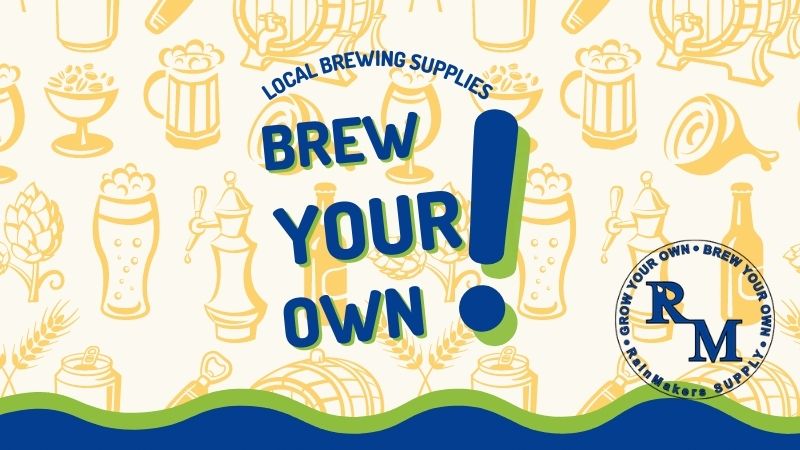
When you first start homebrewing beer, it is much better to start with simple beers instead of complicated recipes. Starting with complex ingredients not only increases your chances of making a mistake during the brewing process but makes it more likely to brew something unpalatable. This happens when novice brewers experiment with ingredients and additives before first learning some basic brewing concepts by heart.
Producing sophisticated beers with complex ingredients leaves a lot of room for error which could be discouraging. A lack of first success may put you off to homebrewing entirely, which would be the worst outcome. Start with one of the following types of beer to get started and enjoy a classic yet tasty homebrew while you contemplate your next beer-making endeavor.
Simple Home Brews for Beginners
American Wheat Ales
When it comes to wheat brews like American Wheat Ales (and other wheat brews, for that matter), any hazing is acceptable. Wheat beers are typically hazy or murky due to their high protein content. Therefore, this might assist in disguising beginning brewing mistakes. Wheat Ales are rarely filtered and don’t require secondary fermentation to bring out their greatest characteristics, making them ideal for brewers who want a speedy first batch.
American Wheat Ales have a light to medium body, foggy look, and citrus, banana, and clove flavors. The grain bill should contain 50 to 70% wheat to give the beer a frothy head. The style is fantastic for spring and summer but works year-round. Picky beer aficionados will love its flavors, aromas, and lighter body.
A standard extract package for this style includes wheat malt extract, 1-2 oz. of hops for bittering and aroma, and ale yeast. This kind of beer is perfect for newbie brewers, and an early feeling of satisfaction might keep a novice brewer on track.
American Brown Ale
Brown Ale is a straightforward style that’s perfect for beginning homebrewers. American Brown Ale uses American hops and yeast, while the English style uses ingredients grown in their homeland, although the American style has more hops than the English style. Both are well-balanced but darker due to more dark malt. Brown Ales are light to medium-bodied and are perfect for brewing all year.
Brown Ale can be a forgiving style and can also make a great beer when called for in cooking recipes. American Brown Ales include caramel, chocolate, and roasted malt aromas. Richer than American lagers and pale ales, it’s good for cold weather and holidays. This makes it an excellent beer to serve around Thanksgiving or Christmas to show off your brewing talents.
Brown Ale is a moderate beer style that pairs well with many foods, making it versatile and pleasant; it rarely clashes with other foods. Brown beers cover a multitude of sins during the brewing process, are naturally bitter, and are suitable for rookie brewers.
Porters
Porter, like Brown Ale, is one of the easiest beers for homebrewers to make, with a forgiving nature that makes it a good choice for beginners. While it doesn’t guarantee an award-winning brew on your first try, its flavor profile might “cover up” flaws in the beermaking process with dark malts or chocolate malt that make this brew error-tolerant. A Porter’s dark and roasted characteristics do a good job of disguising most off-flavors.
Porters are dark beers with brown malt and bitter hops, lighter in color and body than stouts. A common Porter ingredient kit includes dark malt extract, chocolate malt, specialty grain, and 1-2 oz. of mild hops. Too much chocolate malt can give a porter a burnt or harsh taste, so use it sparingly. Robust American Porters have a stronger flavor than Sweeter Baltic or Brown porters.
Starting with a beer like one of these can help you get used to the home brew beer-making process and give you some confidence before tackling some more sophisticated recipes.
RainMakers Supply makes homebrewing easy, serving Chicagoland with quality homebrew supplies, equipment, and ingredients. We offer a knowledgeable staff and brew your own classes to achieve homebrewing success. Contact us with any questions and stop by today for everything you need to get started making quality, tasty beer at home.
